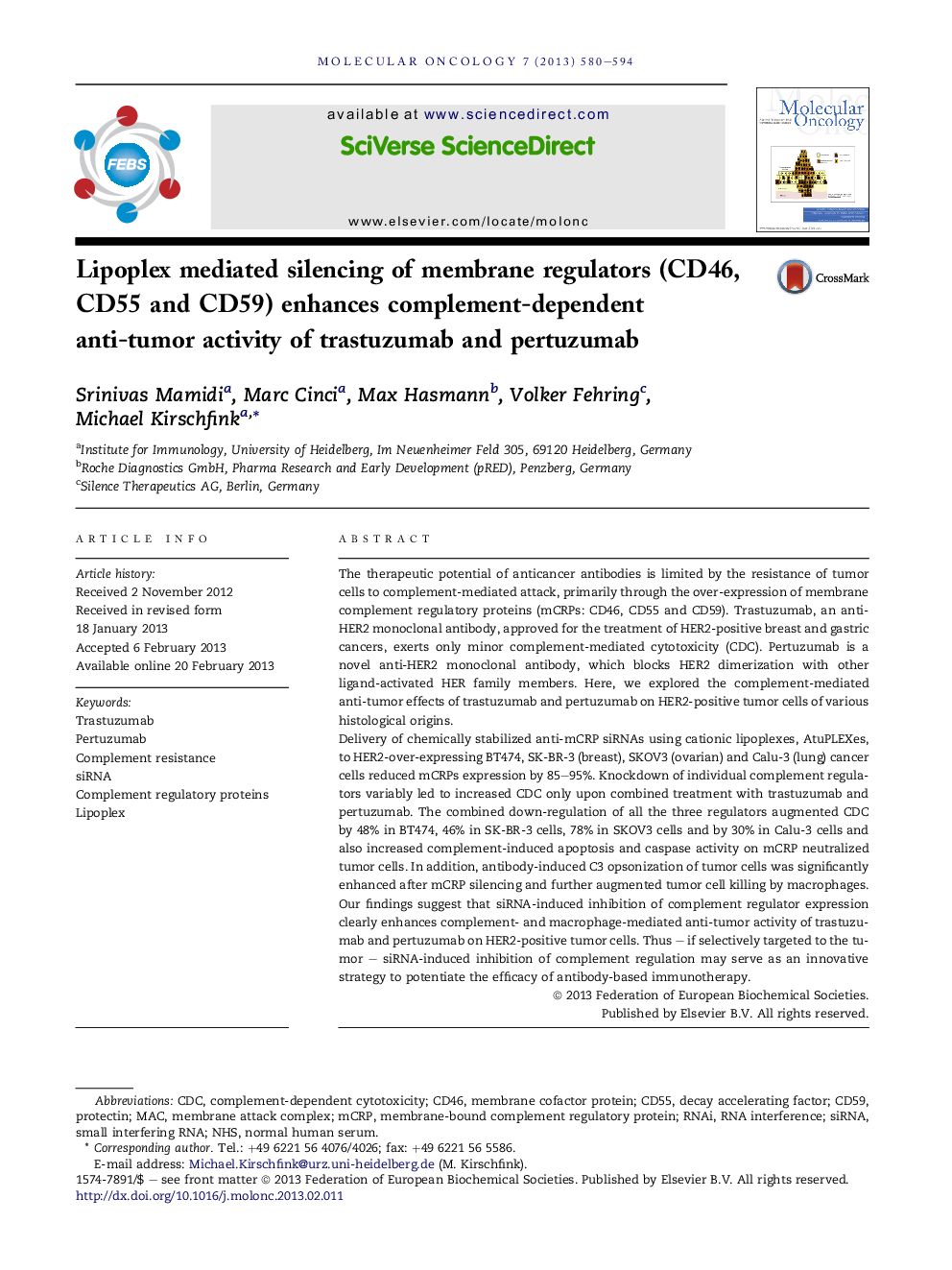| Article ID | Journal | Published Year | Pages | File Type |
|---|---|---|---|---|
| 2145725 | Molecular Oncology | 2013 | 15 Pages |
The therapeutic potential of anticancer antibodies is limited by the resistance of tumor cells to complement-mediated attack, primarily through the over-expression of membrane complement regulatory proteins (mCRPs: CD46, CD55 and CD59). Trastuzumab, an anti- HER2 monoclonal antibody, approved for the treatment of HER2-positive breast and gastric cancers, exerts only minor complement-mediated cytotoxicity (CDC). Pertuzumab is a novel anti-HER2 monoclonal antibody, which blocks HER2 dimerization with other ligand-activated HER family members. Here, we explored the complement-mediated anti-tumor effects of trastuzumab and pertuzumab on HER2-positive tumor cells of various histological origins.Delivery of chemically stabilized anti-mCRP siRNAs using cationic lipoplexes, AtuPLEXes, to HER2-over-expressing BT474, SK-BR-3 (breast), SKOV3 (ovarian) and Calu-3 (lung) cancer cells reduced mCRPs expression by 85–95%. Knockdown of individual complement regulators variably led to increased CDC only upon combined treatment with trastuzumab and pertuzumab. The combined down-regulation of all the three regulators augmented CDC by 48% in BT474, 46% in SK-BR-3 cells, 78% in SKOV3 cells and by 30% in Calu-3 cells and also increased complement-induced apoptosis and caspase activity on mCRP neutralized tumor cells. In addition, antibody-induced C3 opsonization of tumor cells was significantly enhanced after mCRP silencing and further augmented tumor cell killing by macrophages.Our findings suggest that siRNA-induced inhibition of complement regulator expression clearly enhances complement- and macrophage-mediated anti-tumor activity of trastuzumab and pertuzumab on HER2-positive tumor cells. Thus – if selectively targeted to the tumor – siRNA-induced inhibition of complement regulation may serve as an innovative strategy to potentiate the efficacy of antibody-based immunotherapy.
► Delivery of 2′-O-methyl modified siRNAs to CD46, CD55 and CD59 (mCRPs) using lipoplex. ► mCRPs inhibition sensitizes tumor cells to trastuzumab and pertuzumab induced complement attack. ► Enhanced C3 opsonization of HER2-positive tumor cells upon mCRP silencing. ► Increased killing of opsonized tumor cells by macrophages. ► Enhanced anti-tumor effect of trastuzumab and pertuzumab upon mCRP inhibition.
